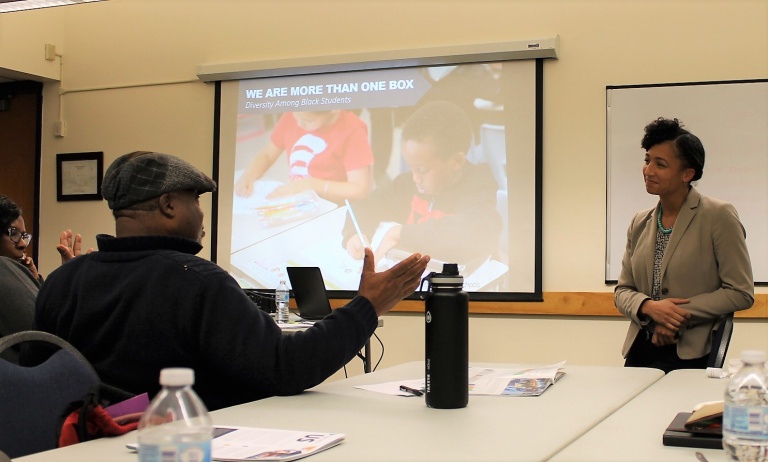Data & Research

What is education data?
Schools gather data on students to fulfill institutional, state, and federal government requirements. This information ranges from the languages students speak at home to their performance on assessments. The purpose is to help teachers improve instruction, inform schools if students are on track to graduate, and advise state leaders on budget and policy decisions.
Even though data is collected from early learning through college, the information is rarely connected, making it difficult to follow long-term outcomes for students. And, all too often, data is used to tell students and families—instead of institutions and systems—what to do to improve achievement.
As a result, we have a lot of data on our students, but very little on the education system serving them.
Data for community action
The Community Center for Education Results, a nonprofit created to support the Road Map Project, developed and maintains a pre-kindergarten through college data warehouse that integrates information across the region. The warehouse also includes data on education systems, including learning environments, district practices, and local policies.
This compilation of data is not only unique to the Road Map Project region, but education databases in general. Rarely do parents, students, communities, school districts, municipalities, and local colleges have a common, accessible source of data and information.
CCER’s data and research team aims to illuminate how those responsible for our students’ education can better serve them. The team uses various data science and research methods and develops presentations, reporting tools, and papers—all driven by the recommendations, experiences, and perspectives of the Road Map Project region’s most-impacted communities. Read our Data and Research Principles here.
| From data that is available, we know… |
From data that is not collected, we want to know… | |
| Early Learning | Access to formal early learning programs for preschool age children varies by neighborhood. | Challenges parents face finding early learning providers that are culturally relevant and affordable. |
| K-12 | Black and Brown students receive harsher punishment than their White peers for the same infraction. | Policies and practices, such as hiring a representative educator workforce, that create and sustain anti-racist schools. |
| High School | Most of the region’s high school students want to go to college, but lack supports and classes that will help them get into and finish a program. | Resources and school staffing needed to help students plan ahead and take the classes required to apply for college. |
| College Success | When community college students are enrolled full time, it increases their chances of success. | The financial aid and course selection support students need to graduate from college. |